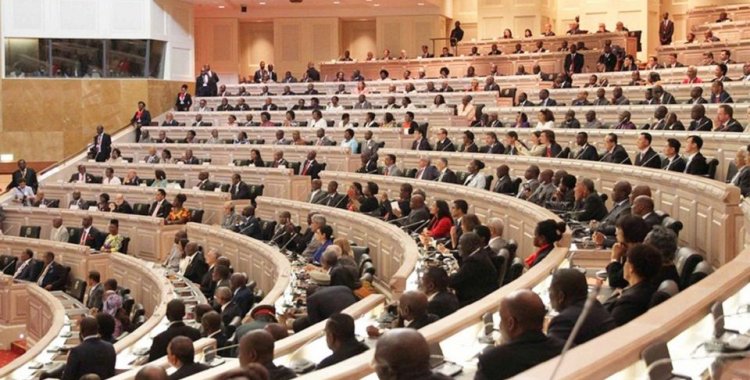The request of the parliamentary group of the National Union for the Total Independence of Angola (UNITA) was rejected with 109 votes against, of the parliamentary group of the Popular Movement for the Liberation of Angola (MPLA), majority party, 79 votes in favour, of UNITA and of mixed parliamentary group Social Renewal Party (PRS) and National Front for the Liberation of Angola (FNLA), and two abstentions, from the Humanist Party of Angola (PHA).
The request, which requests the removal of point six from the agenda of the seventh extraordinary meeting, justifies that the bill, coming from the Civil House of the President of the Republic, “is not in a position to be discussed, because it violates the Constitution, in its articles 1.º, 2.º, 6.º, 22.º, 40.º, 48.º and 57.º and the Rules of Procedure of the National Assembly, in its articles 191º and 195º”.
“The National Assembly, as a sovereign body of the State, subordinates itself to the Constitution, and must respect and ensure respect for the laws and its acts are only valid if they comply with the Constitution (this is the letter and spirit of article 6.º of the Constitution of the Republic of Angola), which is why the plenary should not consider a bill that, in our opinion, is manifestly unconstitutional”, refers in the application.
According to the document, number 1 of article 48 of the Constitution stipulates that citizens have the right, freely and without dependence on any administrative authorization, to form associations, provided that these are organized based on democratic principles, under the terms of law.
“The proposed Statute in reference is riddled with the defect of material unconstitutionality, since in number 2 of article 48 of our magna law it is 'expressis verbis' established that associations freely pursue their purposes, without interference from public authorities and do not may be dissolved or their activities suspended, except in cases provided for by law”, stresses the UNITA parliamentary group in the document.
For the UNITA parliamentary group, “citizenship must be exercised individually or collectively and the State must not create laws or mechanisms to hinder the fundamental rights of constitutionally enshrined citizens”.
A national campaign against this proposed law, “to control organizations”, as Non-Governmental Organizations call it, was launched this week.
The campaign manifesto, coordinated by Omunga, considers that “in the course of building the Democratic State of Law in Angola, processes of regression have been witnessed, with regard to respect for the fundamental rights and guarantees of citizens at the most varied levels, which constitutes a systematic violation of the Constitution”.
“This situation increasingly reinforces the need for collective action, led by citizens who can contribute to the construction of the common good and feel part of, and active in, the analysis of the problems that affect all of us and all of us. can express their ideas, for the development of the country that saw them born and grow”, refers in the document.
“The observation, among us, is that the reflection on the Angolan State goes in the opposite direction, in which official discourses seek to incriminate and threaten with negative sanctions the voices of civil society that disagree with adopted policies and that denounce abuses of power, the use coercive use of force, as well as the use of State institutions for private purposes”, adds the manifesto.
For the NGOs, “this seems to be the only reason to explain the current bill that aims, among other objectives, 'to create an entity to control and reduce to nothing the exercise of associativism' with defamatory and delusional arguments of 'being financed by terrorist organizations'”.
“Civil society organizations strongly advise the Angolan government to move forward with such a proposal, which would mean the loss of decades of attempts to build a society in the process of democratization”, they appealed.
“Therefore, the campaign that aims to stop this process in the National Assembly is open, as it is unconstitutional and yet another attack on the Democratic State of Law, violating the fundamental rights of citizens, specifically the right of association enshrined in the Constitution of the Republic of Angola, especially in its article 48”, they argued.







